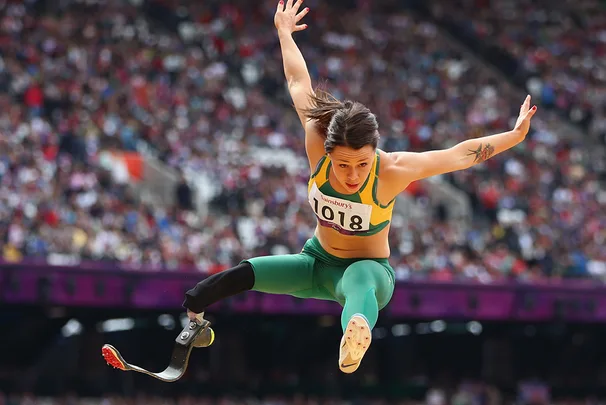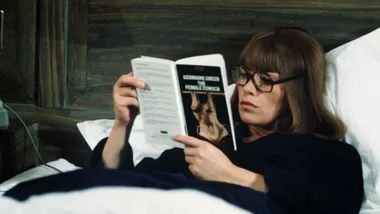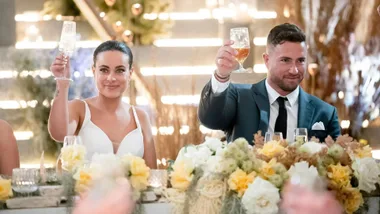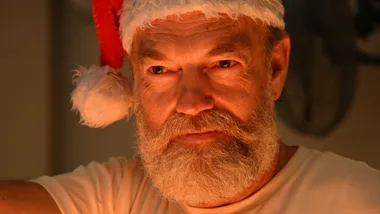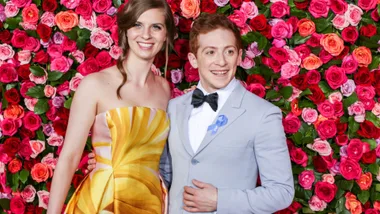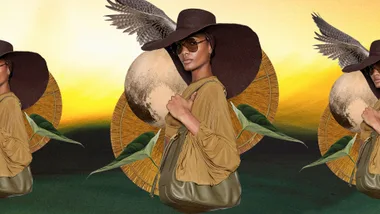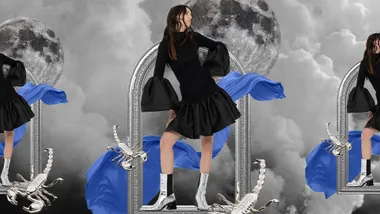Growing up, I lived in a small town in Portarlington, in Victoria. My brothers played local footy and I played for the Netball club, I adored it. As a little girl, I would dream of playing centre for Australia.
In about 2002, I really started to have pain in my knee and the doctors put it down to growing pains or playing netball. It was going on for about two years and I would strap it and do physio. They just all assumed it was normal, but I had to give up netball and decided to get a scan done.
That’s when they found a lump. They said it was a cyst and it would eventually just go away by itself, or I could have minor surgery.
I decided to have minor surgery because if I did get the operation, it would be fixed, and I’d back to school quicker than just leaving it. But it wasn’t until the [the hospital] called my parents back and asked us to come in—that’s when I thought “that’s a little bit weird”.
Her cancer diagnosis
I remember they sat us all down and said, “I’m really sorry, what we found in your knee wasn’t a cyst, it was synovial sarcoma”. I didn’t really know what any of those words meant, so as soon as they said it was a rare form of cancer, that’s when it really sunk in and my world turned upside down.
My parents were heartbroken, and when you’re in that situation you look to them for strength, but to see how shattered they are, that was really hard.
[The doctor] had never seen that type of cancer, so he really couldn’t say too much other than one in two million people get it, and that he had to send me somewhere else to answer all the questions we had.
A difficult decision
I was fifteen and went to the Royal Children’s Hospital. I was then faced with the decision to have more surgery to try and remove as much of the cancer as possible—if not all of it—because they weren’t sure how deep it was in my knee, they weren’t even sure if it had spread. Or, the other option was amputation.
I said I would rather die than have my leg amputated, that’s the way I felt. But my decision changed when I got on Google, after my dad did. Everybody uses Dr. Google these days.
It was hard seeing the statistics, that it did not have a very high survival rate, which changed my mind. I also read that for a lot of people the cancer spreads quite aggressively. I had five days to think about my decision, and during that time I had scans form head-to-toe and found out that it hadn’t spread. That changed my mind as well. I knew that if I amputated my leg I could potentially be cancer free.
I knew that the amputation was my only choice to survive.
Waking up after surgery
I wondered what I would feel like after the surgery. When I woke up, I remember seeing the TV screen above my bed and it was 40 degrees that day. I only had a sheet on, it was so hot, and I saw the reflection on the TV and my leg was gone. You couldn’t really see it. I asked Dad to turn the TV around. That was hard, but from then on I sort of just looked forward.
It was November— so it was the end of year 10 for me— and my aim was to get back to school at the end of January when it started. I was a bit naïve, I thought I would walk out of hospital on a prosthetic leg, but obviously I had a lot of rehab to do and a lot of healing.
I did go back to school on crutches and that was hard, relying on people again. I had great friends but people from school didn’t really know how to take me anymore or talk to me. My advice to others is to lean on your closest friends. And to talk about it openly and really open up to people.
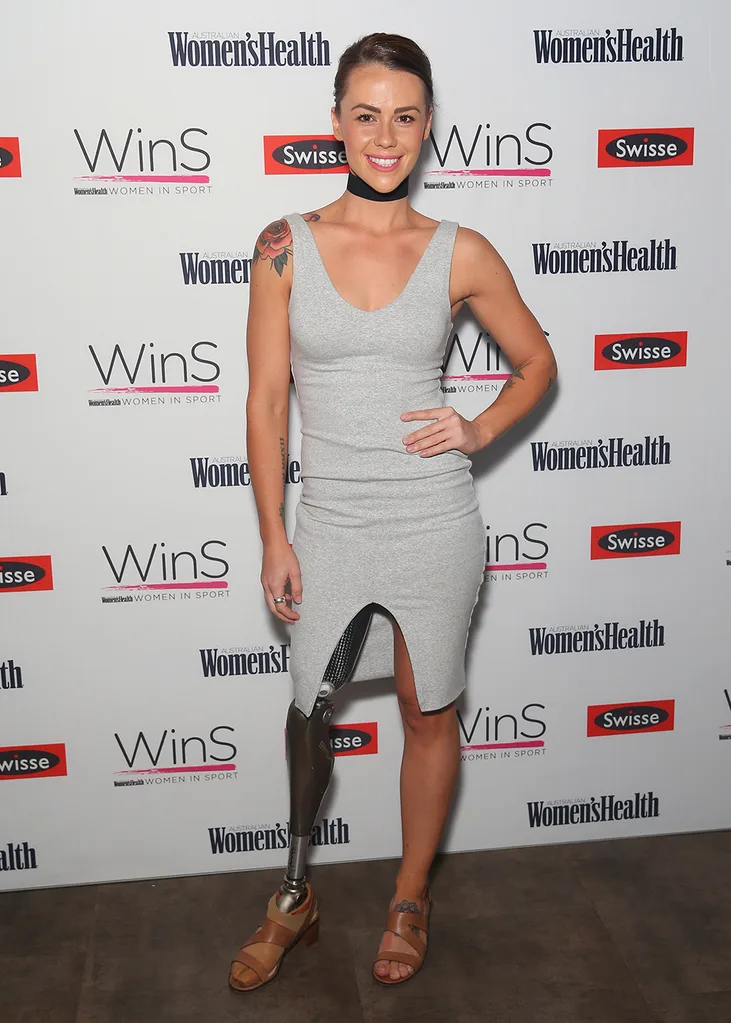
Becoming an athlete
I got fitted for my first leg, which was strapped around the stomach. It was pretty hard to walk, but that’s what most amputees who get fitted learn with. I started walking on it, I did my deb on it! Now I’m on a microprocessor knee—so it’s a computerised knee—it’s a lot different.
It wasn’t necessarily that I wanted to be an elite athlete, but I wanted to get back involved in things and get some independence back.
My dad and my physio had taught me how to run on my walking leg. It was just a coincidence that my PE teacher at the time came over and told me about the Paralympics. It would have been a year and a half afterwards that I saw Paralympians and I saw those people with disabilities competing for the world. They were some of the fittest, strongest people I’ve ever seen. I think that’s when everything switched and I said I wanted to be a Paralympian.
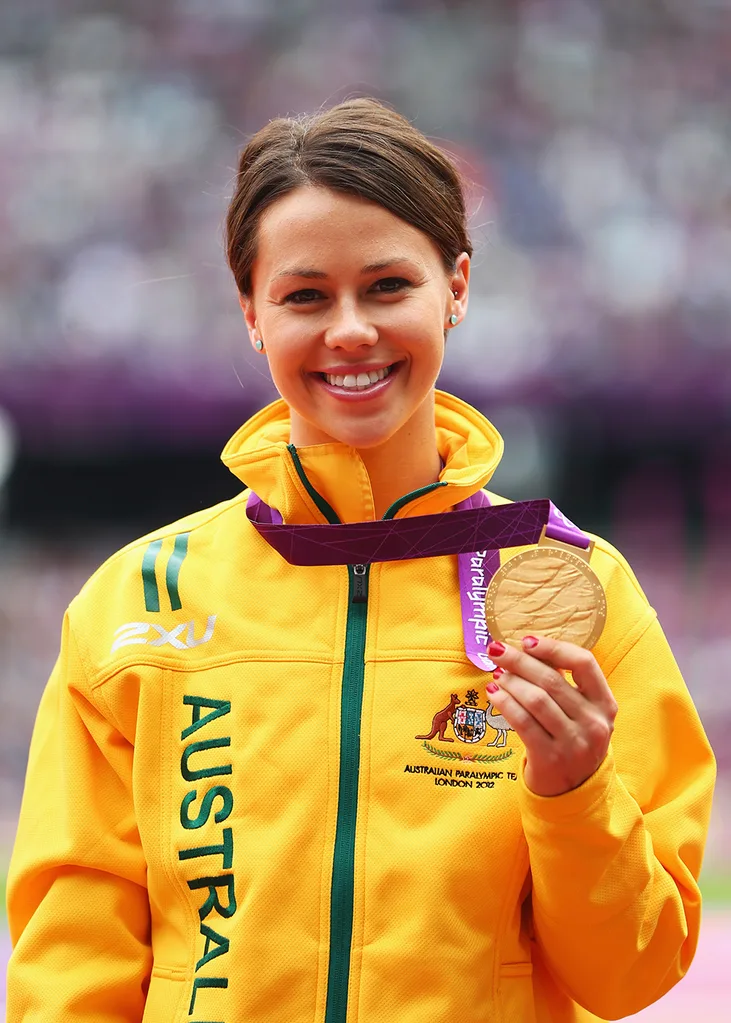
Her career highlights to date
Obviously winning gold at the 2012 London Paralympics (in women’s long jump F42/44) was a huge highlight in my life. But I think one of the biggest things is the day that I went down to the athletics track and let go of my physio’s hands and ran by myself on a running leg. That was a really proud moment.
Another one is when I climbed Mount Kilimanjaro in 2009. I really doubted myself, I nearly gave up, but I didn’t. That was really mentally and physically one of the hardest things I’ve ever done.
Being a mum is probably my biggest moment now!
How her son Max views her prosthetic leg
He’s only 18 months, but he has noticed it definitely. He tries to bring me my leg in the morning now and always tries to press all the buttons. I might be a bit different at school pick-up and drop-off, but that’s something he’ll live with. I’m proud and I think he thinks it’s pretty cool.
On being an ambassador for Run Melbourne, presented by lululemon
I feel really proud to be an ambassador and get involved. On Saturday I’ll be leading the Run Melbourne Friendship Dash, I’ll be pushing my son Max on a tricycle for the 3kms. He probably won’t stay on his tricycle the whole time, so I’ll be be carrying him around too! Everyone can come along and either walk it or run. You might see me as having one leg, but still getting out there and doing it.
Her life philosophy
My mentor Don, who is also my manager, taught me to always look for a positive each day, even if some days you have to look a little bit harder. I have hard days—everybody has hard days—and if you focus your energy on one little thing that’s positive, it really helps.
Kelly Cartwright is an ambassador for Run Melbourne presented by lululemon and will be leading the Run Melbourne Friendship Dash on Saturday 29 July. Learn more at runmelbourne.com.au and lululemon.com.au.
